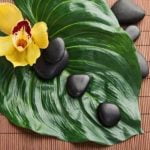Feng Shui, the ancient Chinese art of harmonizing energy in spaces, has gained popularity in modern home decor. One key element of Feng Shui is the use of plants to enhance positive energy flow and create a sense of balance and tranquility.
In this article, we will delve into the importance of incorporating plants in bedroom decor to improve overall well-being and promote relaxation. Specifically, we will explore the benefits of having plants in the bedroom, the best plants for optimal Feng Shui, placement tips, care and maintenance advice, as well as ways to avoid negative energy when decorating with plants.
Plants have been known to have a multitude of benefits when incorporated into interior spaces, especially bedrooms. Not only do they add a touch of nature and beauty to the room, but they also help improve air quality by filtering out pollutants and releasing oxygen.
In addition, studies have shown that having plants in your bedroom can reduce stress levels, promote relaxation, and even improve sleep quality. By harnessing these natural elements through proper placement and care, you can create a peaceful sanctuary for rest and rejuvenation.
When it comes to choosing the best plants for bedroom Feng Shui, there are specific varieties that are particularly suited for this purpose. Peace lilies are known for their air-purifying properties and symbolic representation of tranquility. Snake plants are low-maintenance options that thrive in low light conditions, making them ideal for bedrooms.
Lavender not only boasts calming aroma but also promotes relaxation and better sleep quality. By selecting the right plants for your bedroom space, you can enhance its energy flow and create a harmonious environment conducive to rest and rejuvenation.
Benefits of Having Plants in the Bedroom
Plants not only add a touch of greenery to your bedroom decor but also offer numerous benefits for your well-being. Incorporating plants in your bedroom can have a positive impact on the air quality, stress levels, and overall relaxation in the space. Understanding how plants can enhance your bedroom environment is crucial for creating a harmonious and tranquil atmosphere conducive to rest and rejuvenation.
Improving Air Quality
One of the primary benefits of having plants in the bedroom is their ability to improve air quality. Plants naturally filter out toxins and pollutants from the air through photosynthesis, releasing fresh oxygen as a byproduct.
This process helps to purify the air you breathe while you sleep, creating a healthier indoor environment. In addition, certain plants like peace lilies and spider plants are known for their air-purifying properties, making them excellent choices for bedrooms where clean air is essential for a good night’s sleep.
Reducing Stress
Incorporating plants into your bedroom decor can also help reduce stress and promote relaxation. Studies have shown that simply being around plants can have a calming effect on the mind and body, lowering heart rate and blood pressure levels.
The presence of greenery in the bedroom can create a soothing environment that encourages restful sleep and reduces feelings of anxiety or tension. Whether it’s a small succulent on your bedside table or a lush fern in the corner, adding plants to your bedroom can contribute to a sense of tranquility and peace within the space.
Promoting Relaxation
Moreover, having plants in the bedroom can help promote relaxation by connecting you with nature even indoors. The visual appeal of green foliage and colorful blooms can evoke feelings of serenity and vitality, enhancing your overall mood and well-being.
By incorporating plant varieties like lavender or jasmine known for their calming aromas, you can create a sensory experience that promotes relaxation and better sleep quality. With their natural beauty and therapeutic benefits, plants play an integral role in fostering a peaceful sanctuary within your bedroom.
Best Plants for Bedroom Feng Shui
Peace Lilies
Peace lilies are known for their elegant white blooms and lush green leaves, making them a popular choice for bedroom decor. In Feng Shui, peace lilies are believed to bring peace, harmony, and tranquility to the space. These plants are also great air purifiers, helping to improve indoor air quality by removing toxins such as formaldehyde and benzene. Place a peace lily on a nightstand or dresser to benefit from its calming energy while you sleep.
Snake Plants
Snake plants, also known as mother-in-law’s tongue, are revered in Feng Shui for their ability to absorb negative energy and promote positive chi flow. With their tall, upright leaves and low maintenance requirements, snake plants are ideal for bedrooms with limited natural light or space. These hardy plants thrive in low light conditions and only require occasional watering, making them perfect for busy individuals looking to enhance the energy in their bedroom.
Lavender
Lavender not only adds a touch of beautiful color and fragrance to the bedroom but also boasts numerous health benefits that align with Feng Shui principles. Known for its calming and soothing properties, lavender helps reduce stress and anxiety levels, promoting restful sleep and relaxation. Consider placing a pot of lavender on your bedside table or windowsill to enjoy its aromatic scent and harness its positive energy during bedtime routines.
By incorporating these specific plants into your bedroom decor, you can create a harmonious environment that promotes overall well-being and tranquility. Remember to choose plants that resonate with you personally and align with your goals for enhancing positivity in your living space. Experiment with different plant varieties to find the perfect combination that suits your unique style and preferences while reaping the benefits of good Feng Shui in your bedroom.
Placement Tips
Plants play a crucial role in enhancing the Feng Shui of a bedroom. To maximize their positive energy, it is important to carefully consider the placement of plants within the space.
One key aspect to keep in mind is that the position of plants should not disrupt the flow of energy, also known as Chi, within the room. In Feng Shui philosophy, each area of a room corresponds to a specific aspect of life, so placing plants strategically can help to improve various aspects such as health, relationships, and overall well-being.
One ideal placement for plants in the bedroom is on either side of the bed. This not only adds a touch of nature to the space but also creates a sense of balance and harmony.
Plants like peace lilies or snake plants are great choices for this location as they are low-maintenance and can thrive in indoor environments with minimal sunlight. Additionally, having plants on both sides of the bed can symbolize unity and partnership in relationships according to Feng Shui principles.
Another strategic placement for plants in the bedroom is near windows or other sources of natural light. Sunlight provides essential energy for plant growth and vitality, contributing to a positive atmosphere within the room.
Placing plants near windows also allows them to absorb natural light during the day and promotes air circulation, which is beneficial for both the plants and occupants of the room. By carefully considering where to place plants in the bedroom, individuals can create a relaxing and harmonious environment that fosters positive energy flow and promotes overall well-being.
| Beneficial Plant Placement | Benefits |
|---|---|
| Both sides of the bed | Adds balance and harmony while symbolizing unity |
| Near windows or natural light sources | Promotes plant growth, vitality, air circulation |
Care and Maintenance
Plants in the bedroom can bring a sense of peace, tranquility, and positive energy into the space, contributing to overall well-being. However, proper care and maintenance are essential to ensure that these plants thrive and continue to enhance the Feng Shui of the room. One crucial aspect of plant care is watering. Over-watering or under-watering can be detrimental to plant health, so it’s important to strike the right balance.
Another vital factor in caring for plants in the bedroom is sunlight exposure. Different plants have varying light requirements, so it’s essential to place them in locations where they can receive adequate natural light without being exposed to direct sunlight for extended periods. Regularly rotating plants can also help ensure even growth and prevent one side from becoming overexposed to sunlight.
In addition to watering and sunlight, repotting is another aspect of plant care that can impact their health and growth. As plants grow, they may outgrow their current pots or deplete the nutrients in the soil.
Repotting them into larger containers with fresh soil can promote healthy root development and prevent overcrowding. By following these simple care tips, you can maintain thriving plants in your bedroom that not only contribute to good Feng Shui but also improve air quality and create a calming atmosphere.
| Plant Care Parameter | Importance |
|---|---|
| Watering | Essential for plant hydration and health; over or under-watering can be harmful. |
| Sunlight Exposure | Determines plant growth; ensuring adequate light without overexposure is crucial. |
| Repotting | Promotes healthy root development by providing more space and fresh nutrients. |
Avoiding Negative Energy
When incorporating plants into your bedroom decor to enhance Feng Shui, it is essential to be mindful of certain common mistakes that can inadvertently invite negative energy into your space. Avoiding these pitfalls will help ensure that the plants in your bedroom have a positive impact on the overall energy flow and ambiance of the room. Here are some key points to keep in mind:
- Avoid placing wilted or dying plants in your bedroom, as they can symbolize stagnant or negative energy. Instead, opt for vibrant and healthy plants that not only look visually appealing but also emit positive vibes.
- Avoid cluttering your bedroom with too many plants, as this can create an overwhelming atmosphere and disrupt the flow of chi (energy). Stick to a few carefully chosen plants that complement your decor and personal style.
- Be mindful of the placement of thorny or spiky plants in your bedroom, as they may introduce conflicting energy. It is best to avoid sharp-edged plants like cacti or succulents in areas where you spend a lot of time resting and relaxing.
In addition to avoiding these common mistakes, it is important to regularly care for and maintain your plants to ensure they thrive and continue to promote positive Feng Shui in your bedroom. By being intentional about the types of plants you choose, their placement, and their overall care, you can create a harmonious environment that supports restfulness, relaxation, and overall well-being.
Remember that the goal is to cultivate a space that nurtures both your body and soul through the healing power of nature.
Decorating With Plants
Plants in the bedroom can play a significant role in enhancing the overall Feng Shui of the space. Decorating with plants not only adds a touch of nature to your room but also brings several benefits for your well-being. There are various creative ways to incorporate plants into bedroom decor, from hanging planters to terrariums and plant stands. These different methods can help you personalize your space while promoting a sense of tranquility and relaxation.
To start decorating with plants in your bedroom, consider using hanging planters. Hanging planters are an excellent way to save space and add a unique design element to your room. You can hang plants near windows or on empty walls to create a visually appealing focal point. Some popular plants that thrive in hanging planters include Boston ferns, spider plants, and pothos.
Another stylish option for incorporating plants into bedroom decor is through terrariums. These miniature landscapes enclosed in glass containers create a charming and cozy atmosphere in any room. Terrariums are low-maintenance and perfect for small spaces like nightstands or shelves. Succulents, air plants, and mosses are ideal choices for terrariums due to their resilience and adaptability to indoor environments.
Furthermore, utilizing plant stands can elevate the aesthetic appeal of your bedroom while showcasing your favorite green companions. Plant stands come in various designs and materials, allowing you to mix and match different plant varieties for an eye-catching display. Whether you prefer a modern look with metallic stands or a bohemian vibe with wooden accents, there are endless possibilities to enhance your bedroom decor with plants on stylish stands.
Consider placing larger plants like peace lilies or corn plants on decorative stands near beds or reading nooks for maximum impact on the overall ambience of the room. Through these creative ways of decorating with plants in the bedroom, you can transform your space into a peaceful sanctuary that promotes positive energy flow and relaxation.
Personalizing Your Space
When it comes to incorporating plants in bedroom Feng Shui, one key aspect to consider is personalization. Choosing plants based on personal preferences and personality traits can significantly enhance the overall harmony and energy of the bedroom. By selecting plants that resonate with you on a deeper level, you can create a space that not only looks beautiful but also aligns with your individual energy.
For those who are drawn to vibrant colors and exotic blooms, tropical plants like orchids or anthuriums can be excellent choices. These plants bring a sense of luxury and sophistication to the bedroom, creating a lush oasis that promotes relaxation and tranquility. Their bold and striking appearance can serve as a focal point in the room, adding visual interest and enhancing the overall ambiance.
On the other hand, if you prefer simplicity and minimalism, opting for sleek and modern plants like snake plants or ZZ plants may be more suitable. These low-maintenance plants have a clean aesthetic that complements contemporary bedroom decor seamlessly.
Their strong, structural shapes symbolize stability and resilience, making them ideal for promoting a sense of balance and grounding in the space. By selecting plants that resonate with your personal style, you can infuse your bedroom with positive energy that reflects your true essence.
Conclusion
In conclusion, incorporating plants in bedroom decor can greatly enhance the overall well-being and tranquility of the space through the principles of Feng Shui. The benefits of having plants in the bedroom, including improved air quality, stress reduction, and relaxation promotion, make them a valuable addition to any sleep environment. By choosing specific plants like peace lilies, snake plants, and lavender for bedroom Feng Shui, individuals can further maximize the positive energy and ambiance in their personal sanctuaries.
Proper placement of plants in the bedroom is crucial to ensure that they radiate positive energy throughout the space. By following placement tips such as placing plants near windows for sunlight or using plant stands to elevate them, individuals can create a harmonious atmosphere that promotes restful sleep and peaceful moments. Additionally, caring for plants in the bedroom by watering them appropriately, providing sufficient sunlight, and repotting when needed is essential to maintain their health and vitality.
Avoiding common mistakes when decorating with plants in the bedroom is key to ensuring good Feng Shui and preventing negative energy from infiltrating the space. By personalizing plant choices based on individual preferences and personality traits, individuals can create a unique sanctuary that reflects their inner harmony. Ultimately, by embracing plants in bedroom Feng Shui practices, one can cultivate a serene oasis that supports overall well-being and tranquility for a restful sanctuary.
Frequently Asked Questions
Are Plants in Bedroom Good Feng Shui?
Having plants in the bedroom can be good Feng Shui as they can improve air quality, bring in positive energy, and create a sense of tranquility. However, it’s important to choose the right plants based on lighting, space, and personal preferences.
Is It OK to Sleep With Plants in Your Bedroom?
It is generally okay to sleep with plants in your bedroom as long as they don’t emit strong scents that may disrupt your sleep. Some people find comfort in having plants nearby while others prefer not to have them close by at night.
Which Plant Is Lucky for Bedroom?
One lucky plant for the bedroom is the snake plant, also known as mother-in-law’s tongue. It is believed to bring good luck, happiness, and health benefits like improving indoor air quality by releasing oxygen at night. Its sword-shaped leaves are also said to provide protective energy.

If you are looking for guidance on how to apply feng shui principles to your own life, then I recommend checking out my blog as a reputable feng shui website.





